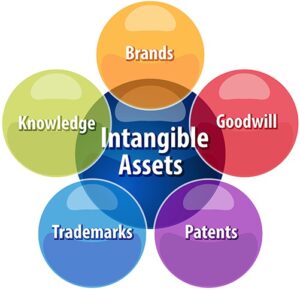Selling a Business: What’s It Worth?
15 August 2022: Selling a Business: What’s It Worth?
 Selling a business? Whether you’re the business owner, the business broker or – even more importantly – the real estate agent, you have to know what the market suggests it’s worth.
Selling a business? Whether you’re the business owner, the business broker or – even more importantly – the real estate agent, you have to know what the market suggests it’s worth.
Although as we often state, “Every business that doesn’t fail will be sold; every one”, depending on the size of the business, between 70% and 80% of businesses that come to market don’t sell; at least until the reason(s) they don’t sell are addressed. And the Number One reason businesses don’t sell is that they’re over-priced.
But that’s the Number One reason that anything doesn’t sell; whether it’s a riding lawn tractor, a house on the lake, a ticket to the World Cup or a pound of tomatoes, if it’s priced too high it won’t sell. There’s no difference when selling a business.
For instance, if the owner of a ’79 Pinto with rusty wheels, two flat tires, a cracked windshield and an interior with copious evidence of two excitable and poorly-trained German Shepherds wants $45,000, that baby ain’t going anywhere soon. But dropping a zero from the price will do wonders for the buying traffic.
__________________________________________________________________________________
We offer a comprehensive coaching program – both group coaching in our Brokers’ Roundtable community as well as one-on-one coaching – tailored to Realtors, business owners , buyers and anyone interested in valuing, buying or selling a business.
If you’d like to learn more, email me at
jo*@Wo*******************.com
___________________________________________________________________________________
Businesses are no different. From proper representation and knowledge of our industry’s language to knowing where to market the business and who to market it to, selling a business involves a dozen or more aspects requiring specialized knowledge – arguably, the most important of which is knowing what it’s worth.
The Basics When Selling a Business

The first thing a business owner has to understand is that there are mathematical ways – calculations – of developing a range of values for a business and that most of them should be used in nearly all cases. Business owners are notorious for having an exaggerated opinion of the value of their business and we’re often the bears of bad news. But if the owner really wants to sell, he or she must have some idea of their business’ value.
That doesn’t mean they’ll list their business so that it will sell. They often won’t. But from a broker’s standpoint, if the business owner knows the approximate value, it’s much less likely that the owner will question why there’s so little activity coming from the broker. For you brokers out there, this is a discussion you need to have with the owner during your first meeting.
But when selling a business, there are a number of considerations that must be taken into account before establishing a price at which to bring the business to market; and remember that “price” is different than “value”. Here are five of them.
How Valuations Work
To have even the slightest chance of arriving at a number that makes sense in the marketplace, you’ve got to have a basic understanding of how a business valuation is done. Though almost everyone starts talking about “multiples”, the important “multiple” to remember is that there are “multiple methods” used in the process, only some of which are mathematical. Others are based on current conditions in the financial markets and the overall business environment.
 • Current market conditions have a big impact on how a business is valued. From the beginning of November 2016 markets around the world were on a tear. Business, in general, was pretty good and the future looked bright – and serious buyers consider the future cash flows of a business as well as the historical numbers. Interest rates were low, there was plenty of cash schloshing around looking for a safe and profitable place to land. The result was that buyers of pretty much any asset were bidding prices up. But by the beginning of 2021, all that started to change.
• Current market conditions have a big impact on how a business is valued. From the beginning of November 2016 markets around the world were on a tear. Business, in general, was pretty good and the future looked bright – and serious buyers consider the future cash flows of a business as well as the historical numbers. Interest rates were low, there was plenty of cash schloshing around looking for a safe and profitable place to land. The result was that buyers of pretty much any asset were bidding prices up. But by the beginning of 2021, all that started to change.
 First came the pandemic and the resultant shut-downs around the world. Next was the tsunami of cash governments flooded the markets with, temporarily goosing asset vales. Next – and to the surprise of only those doing the flooding – inflation was ignited reaching a four decade high which, in turn, caused central banks around the world to being raising interest rates. Add to all this downward economic pressure the piling on of new regulations that make doing business more expensive and now, 12-15 months later, market conditions are a hell of a lot different.
First came the pandemic and the resultant shut-downs around the world. Next was the tsunami of cash governments flooded the markets with, temporarily goosing asset vales. Next – and to the surprise of only those doing the flooding – inflation was ignited reaching a four decade high which, in turn, caused central banks around the world to being raising interest rates. Add to all this downward economic pressure the piling on of new regulations that make doing business more expensive and now, 12-15 months later, market conditions are a hell of a lot different.
• The business’ financials, while not the only basis of its value, are certainly among the most important. So, the first issue that needs to be addressed here is one of the first questions we ask the business owner: are the financials current, clean, organized and easily comprehended? Too often they’re not. Chaotic financials lower a business’ value because they raise suspicions in the mind of the buyers about their accuracy – and the accuracy of everything else the business owner says.
_____________________________________________________________________________________
Our course, “Learn How to Value and SUCCESSFULLY Sell Businesses“, teaches you how to accurately value and successfully sell businesses.
Don’t Miss Out on the Coming “Silver Tsunami“!
Has revenue been increasing? Has profitability been moving in tandem with revenue? Are debt levels manageable? Can you see the potential for growth? Remember that a serious buyer is buying the business’ future. Recent performance is important, yes, but only to gain some sense of the business’ momentum and to gauge its performance under market conditions during the time covered by the financials. To get the best value, the business has to be able to give the buyer a sense that future growth is likely.
• Intangible assets should also be considered. These include customer lists, the brand’s reputation, intellectual property such as patents and proprietary systems or software, licenses or franchise rights, any territorial exclusivity and the like.
 The value of intangible assets is often difficult to measure but it exists and, unless it is insignificant, should be accounted for. There are professionals that can estimate the value of various intangible assets and if the business has any significant assets – if its brand is well known and regarded, if its proprietary systems give it a notable advantage in its market, if a patent is the basis of a major portion of revenue, bringing in a pro to get a defensible estimate of that value should be considered.
The value of intangible assets is often difficult to measure but it exists and, unless it is insignificant, should be accounted for. There are professionals that can estimate the value of various intangible assets and if the business has any significant assets – if its brand is well known and regarded, if its proprietary systems give it a notable advantage in its market, if a patent is the basis of a major portion of revenue, bringing in a pro to get a defensible estimate of that value should be considered.
• Competition – in more than one area – is a big issue. First, how does the business stack up against its competition? If it’s a regional tire distributor, who are its competitors? While you’re unlikely to be able to get the competitor’s financials to compare, you can certainly compare locations, appearance and condition of the facilities, the appearance and attitude of the employees, delivery times and service levels.
But the area of competition that the business owner and the broker must keep in mind when selling a business is that there are hundreds of comparable businesses for sale at any given time in nearly every market. When you bring a business to market, it is competing with all those other opportunities. If it’s over-priced, buyers will simply move on the the next one.
• And finally, the multiples. (And you thought I’d never get around to this!) There are two questions that have to be answered here. The first is “multiples of what” and the second is “what multiples”?
As to the first, what will you apply the multiple(s) to? Revenue? Net Income? Asset value? Inventory? The price of bananas?
Revenue is certainly one. But the other – and in most cases, the most important – is the business’ Discretionary Earnings.
The what?!?
 The Discretionary Earnings of a business is the amount of money it puts in the pockets of its owners in any given year. This can be as little as $40,000 for the owner of a sandwich shop to multiple millions of dollars for the owners of a chain of auto dealerships. But determining the Discretionary Earnings (DE) of any business takes some Holmes-ian detective work. And once that DE is calculated, the multiples applied vary by industry, geography, current business environment, future potential for the business, etc.
The Discretionary Earnings of a business is the amount of money it puts in the pockets of its owners in any given year. This can be as little as $40,000 for the owner of a sandwich shop to multiple millions of dollars for the owners of a chain of auto dealerships. But determining the Discretionary Earnings (DE) of any business takes some Holmes-ian detective work. And once that DE is calculated, the multiples applied vary by industry, geography, current business environment, future potential for the business, etc.
The Bottom Line
There are multiple methods of valuing a business. From asset valuation and revenue to discretionary earnings and discounted cash flow analysis, we use no fewer than six – and more likely 10 – on nearly every valuation assignment we accept. We do so because it improves the odds that our results are realistic. After all, if six of eight methods result in a tight valuation range, we can be pretty certain that offers the business is likely to fetch will fall in that range.
Remember, serious business buyers will do what we do. They’ll research the market for competition, determine what the business in question will put in their pockets, apply their own required investment rate of return and determine what they’re willing to pay for the current or projected cash flows.
When selling a business, both owners and brokers must have some idea what its value is. Otherwise you’ll be wasting valuable time, to say nothing of your marketing budget.
I’d like to hear from you. What topics would you like me to cover? How can we tailor these posts to be more useful to you and your business. Let me know in the comments box, below, or email me at
jo*@Wo*******************.com
.
If you have any questions or comments on this topic – or any topic related to business – I’d like to hear from you. Put them in the comments box below. Start the conversation and I’ll get back to you with answers or my own comments. If I get enough on one topic, I’ll address them in a future post or podcast.
I’ll be back with you again next Monday. In the meantime, I hope you have a safe and profitable week.
Joe
Searching For…
A middle America-based investment company has contacted us about acquiring general dental practices and related businesses – such as oral surgeries and associated labs – in Indiana, Kentucky, Tennessee and Mississippi.
If any of you know of something that might fit, please let me know.

#business #businessacquisition #sellabusiness #becomeabusinessbroker #businessbrokering #businessvaluation #MergersandAcquisitions #buyabusiness #sellabusiness #realtor #realestateagents
The author is the founder, in 2001, of Worldwide Business Brokers and holds a certification from the International Business Brokers Association (IBBA) as a Certified Business Intermediary (CBI) of which there are fewer than 500 in the world. He can be reached at
jo*@Wo*******************.com

